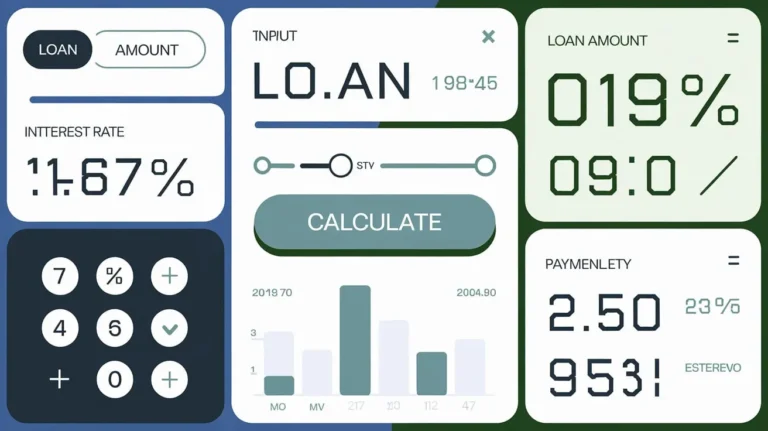Unlocking the Secrets of Dream Interpretation: A Guide to Understanding Your Dreams
Dream interpretation can be a fascinating journey into the subconscious mind. Understanding the intricacies of our dreams can provide profound insights into our emotions, desires, and experiences. In this article, I will guide you through the landscape of dream interpretation, diving deep into various symbols and meanings, as well as the psychological underpinnings that may influence our nightly visions. With the ever-growing interest in the relationship between dreams and our psychology, this article serves to enhance your understanding of a subject that has intrigued humanity for centuries. Let’s explore together the meaning behind your dreams and look at some professional insights on dreaming, in an easily digestible format.
What Are Dreams and Why Do We Dream?
Dreams are a universal phenomenon experienced nearly every night by everyone, typically occurring during the rapid eye movement (REM) sleep stage. Psychologists have long pondered the purpose of dreams, leading to various interpretations. Some researchers believe that dreams serve a critical role in processing emotions and solidifying memories. Meanwhile, others argue they are merely a byproduct of our brain processing information from the day.
This brings us to one of the commonly held theories: the activation-synthesis hypothesis. This theory suggests that dreams are the brain’s way of synthesizing and interpreting random neural activity. While there still is no definitive answer, the psychological benefits of dreaming are widely recognized. Dreams can offer a creative outlet, serving the mind by allowing it to connect the dots between various experiences and feelings.
Common Dream Themes and Their Meanings
Diving deeper into dream interpretation requires familiarity with common themes and symbols that frequently appear in dreams. For instance:
- Falling: Often associated with feelings of loss of control. This type of dream may suggest you’re feeling overwhelmed in real life.
- Being Chased: Frequently relates to anxiety or avoidance. This indicates something challenging that you may be trying to avoid confronting.
- Flying: Generally represents a sense of freedom or release. If you find yourself soaring in your dreams, it may signal empowerment and letting go of constraints.
- Exams or Tests: These dreams often highlight feelings of inadequacy or fear of judgment. They indicate you are evaluating yourself or worried about how others perceive you.
These themes can be a rich tapestry showcasing our mental state. It’s essential to consider personal context, coupled with these themes, as shared elements in dreams are experienced uniquely by each individual.
The Role of Emotion in Dream Interpretation
Another vital aspect of dreams is the strong emotional component associated with them. A study published in the journal Dreaming emphasized that the emotional intensity in dreams frequently mirrors waking life emotions.
When analyzing your dreams, consider the feelings associated with them. Below are some guiding questions:
- What emotions did I feel during the dream?
- What feelings lingered upon waking?
- Do these feelings relate to current issues in my waking life?
Understanding the emotional landscape of your dreams is critical in making sense of their meanings.
For example, a person experiencing a dream where they feel immense joy can correlate that with positive feelings in their waking life. In contrast, isolating themes of fear such as losing something or feeling abandoned may echo deeper issues needing addressing.
Interpreting Symbols in Your Dreams
Dreams are highly symbolic in nature, often utilizing metaphoric messages to convey underlying thoughts and feelings.
Here are some prevalent dream symbols and their meanings:
- Water: Typically symbolizes emotions and the unconscious. Raging waters can reflect tumultuous feelings, while calm waters often indicate relaxation.
- Animals: Often represent instincts and primal qualities. A fierce animal like a lion may signify courage or aggression, while gentle creatures may symbolize compassion.
- Teeth Falling Out: A common nightmare linked to feelings of insecurity or concerns about one’s appearance.
- Vehicles: Can indicate the direction you take in your life. A smooth ride often reflects confidence, while mechanical failures could symbolize obstacles.
Learning to identify symbols can offer substantial context and insight into your dream narratives. Paying attention to these symbols may warrant further reflection on how they relate to your current life circumstances.
Factors Influencing Your Dreams
Various external and internal factors can significantly influence your dreams.
Consider the following aspects:
- Diet: Heavy meals or caffeine consumption before bed can lead to more vivid or disrupted dreams.
- Sleep Environment: Noise, light, and overall comfort of your sleeping conditions may affect the quality of your sleep and dreams.
- Medications: Some medications may induce specific dreams or nightmares as side effects.
Be mindful of these factors as they play a crucial part in shaping the content and quality of your dreams.
Journaling Your Dreams
One powerful method for better understanding your dreams is to keep a dream journal. Writing down your dreams, emotions, and symbols as soon as you wake up can help you identify patterns and themes over time. In doing so, you may discover recurring thoughts, events, and symbols that pop up frequently.
Follow these simple steps to maintain an effective dream journal:
- Keep your journal next to your bed for accessibility.
- Upon waking, immediately write down your dreams with as much detail as possible.
- Include emotions and symbols associated with each dream.
- Review your journal entries periodically to spot connections and patterns.
The practice of journaling can elevate your awareness of your subconscious mind and encourage reflection on your thoughts and feelings.
Common Misconceptions About Dream Interpretation
Many myths surround the topic of dream interpretation that can mislead individuals into misunderstanding their dreaming experiences.
Here are a few common misconceptions worth noting:
- All Dreams Have Universal Meanings: While certain symbols are widespread, dream interpretation is ultimately subjective and varies from person to person.
- Nightmares Are Only Bad: Nightmares can serve a valuable purpose, often presenting challenges that require confronting fears or emotions.
- Remembering Dreams Means You’re a Good Dreamer: Forgetting dreams is normal and does not indicate your mental health or dream quality.
Being aware of these misconceptions allows you to approach your dreams with a more informed perspective.
Conclusion: Exploring the Depths of Your Dreams
Dream interpretation is a guide to unlocking the profound messages within your subconscious mind.
By understanding the themes, symbols, and emotional components, you can gain insight into your thoughts and feelings. Maintaining a dream journal, being aware of influencing factors, and dispelling common myths allows for a more enriched experience.
Approaching your dreams with curiosity and reflection can lead to personal growth and clarity, fostering a deeper connection to your inner self.
FAQs about Dream Interpretation
What do nightmares mean?
Nightmares commonly depict fears or anxieties that may be unresolved in waking life. They can manifest as a way to process these fears, offering an opportunity for personal reflection and coping.
How do I improve my dream recall?
Improving dream recall can be achieved by keeping a dream journal and practicing mindfulness techniques before sleep. Ensuring adequate sleep and minimizing disruptions can also enhance recall.
Does everyone dream?
Yes, everyone dreams, though some individuals may not remember their dreams upon waking. It is a natural part of the sleep cycle.
What are common themes in dreams?
Common themes include falling, being chased, losing teeth, and flying. Each theme has emotional implications and reflects feelings about one’s waking life.
Can dreams predict the future?
While many people believe their dreams may offer glimpses into the future, there is no scientific evidence to support this idea. Dreams often reflect concerns, desires, or ongoing situations in your waking life.
Engage with your dreams and share your interpretations in the comments below! Your thoughts, experiences, and questions are always welcome.





